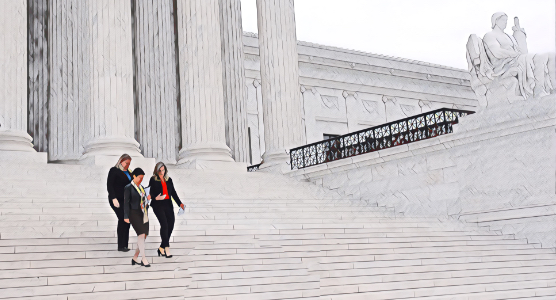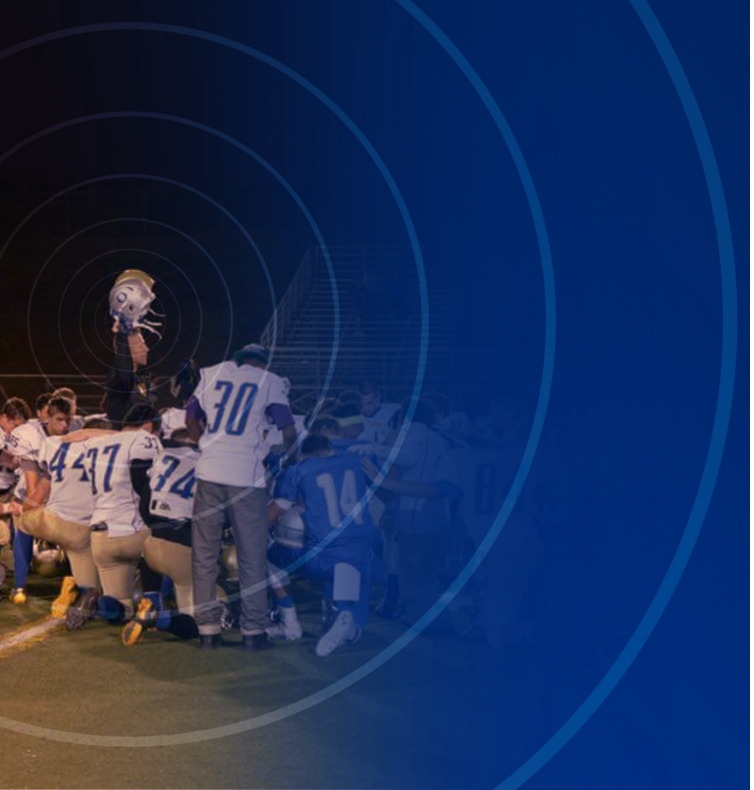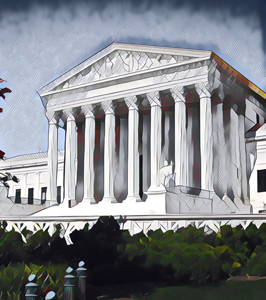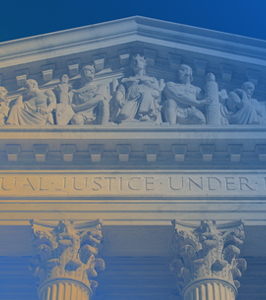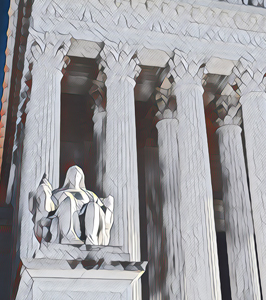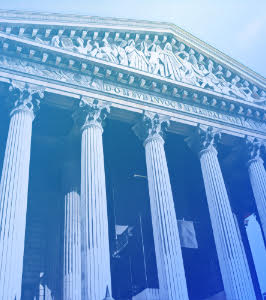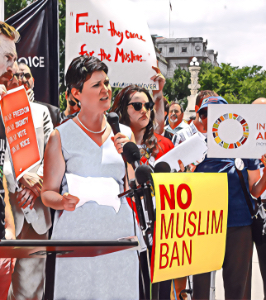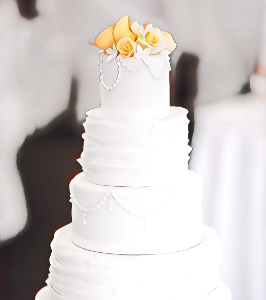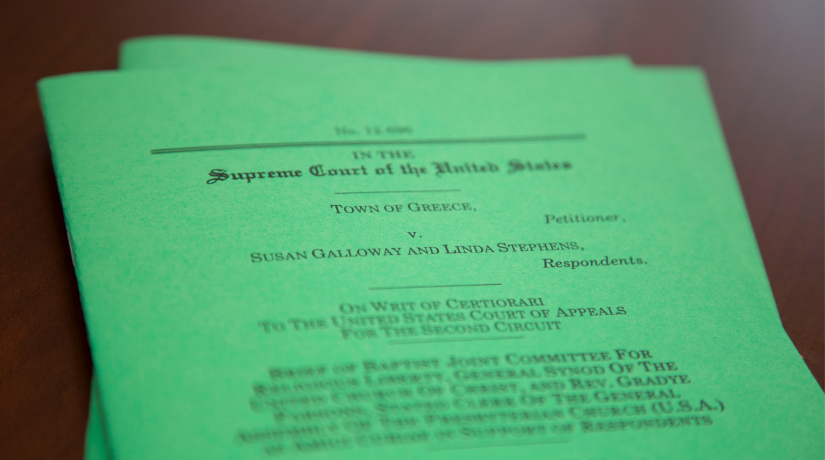With more than seven decades of advocating at the U.S. Supreme Court, BJC vigilantly monitors religious liberty cases. Our attorneys file amicus curiae (“friend-of-the-court”) briefs at the U.S. Supreme Court and in other venues, often in collaboration with other religious and secular groups. For state and federal cases, we provide public comment and expert analysis.
These cases are often tricky to navigate. The position that best protects religious liberty for everyone may not be the obvious position at first glance. Drawing on our deep knowledge and grounded in historic Baptist tradition and experience, our litigation efforts defend our First Amendment rights of “no establishment” of religion and “free exercise” of religion. As lawyers, Baptists and Americans, we will stand for our principles even if our positions aren’t popular. Religious liberty is our client.
For conversations about current cases, check out the Respecting Religion podcast series, featuring BJC’s Amanda Tyler and Holly Hollman.
In the Courts
BJC’s position: Yes. When prison guards forcibly cut a prisoner’s hair – despite him being Rastafarian and providing them with information on his legal protections – a court may order the payment of money damages as “appropriate relief” pursuant to federal law.
Prison guards cannot forcibly shave someone’s head if they are practicing a religion that requires long hair, but that’s exactly what happened to Damon Landor in a Louisiana prison. A devout Rastafarian, Landor had a copy of a federal court decision upholding Rastafarian prisoners’ rights to wear dreadlocks. Despite that clarity, Louisiana state prison officers held Landor down and literally tossed the decision in the trash as they got rid of his hair. In Landor v. Louisiana Department of Corrections, he is asking for compensation from the offending officers as individuals.
BJC joined a brief in this case on the side of Mr. Landor, noting that he is protected by the Religious Land Use and Institutionalized Persons Act (RLUIPA), which demands that prison systems not impose substantial burdens on incarcerated individuals’ religious exercise without compelling justification. The Supreme Court will hear arguments in the case on November 10, 2025.
Watch this brief discussion on the case from our Respecting Religion podcast:

BJC’s position: No. Religion should never be compelled, and the government should not fund religious education. BJC filed a brief in Oklahoma v. Drummond to stop a proposed public charter school that would teach religion, evangelize students and require employees to follow church doctrine. If religious charter schools become legal, states could fund schools that discriminate based on faith, identity or creed. That’s a betrayal of both public education and religious freedom.
The U.S. Supreme Court released an unsigned per curiam opinion on May 22, 2025, noting that they were deadlocked at 4-4. A tie vote means the lower court decision stands, and Oklahoma will not fund this religous charter school. “The Supreme Court’s deadlock means an important principle remains intact: the government cannot operate a religious school, nor can it directly sponsor, promote, or pay for religious education,” said BJC General Counsel Holly Hollman in a statement.
For more, read Read BJC’s brief and a post with details on the decision. We also have an episode of the Respecting Religion podcast on the decision.

BJC’s position: No. The government’s role is not to teach religious beliefs, and this law elevates one set of religious beliefs over all others. BJC filed a brief in Roake v. Brumley at the 5th U.S. Circuit Court of Appeals, explaining how Louisiana’s law creates unavoidable state-sponsored religious indoctrination, selecting a preferred version of the Ten Commandments that aligns only with certain faiths and denominations. There is a stark difference between state-sponsored religious indoctrination and teaching about religion.
The 5th Circuit agreed with BJC’s brief, declaring that the law mandating the posting – known as “HB 71” – is unconstitutional. Read more about the decision.

BJC’s position: No. The “de minimis cost” standard in 1977’s Trans World Airlines, Inc. v. Hardison misinterprets Title VII of the Civil Rights Act of 1964, which states only an “undue hardship on the conduct of the employer’s business” can allow employers to deny a religious accommodation. BJC also believes that merely showing a burden on other employees is not typically enough to meet the undue hardship test.
BJC supports the challenge brought by part-time mail carrier, Gerald Groff, who lost his job for failing to work on his Sabbath after the U.S. Postal Service began Sunday deliveries for Amazon. BJC joined a brief with religious groups in Groff v. DeJoy asking the Supreme Court to overturn Hardison. The Supreme Court heard arguments in the case April 18, 2023 and released a unanimous opinion clarifying the standared on June 29, 2023. Read more at BJConline.org/Groff.
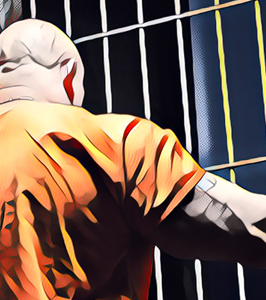
BJC’s position: No. The state must provide specific evidence that its ban on religious practice in the execution chamber is the least restrictive means of furthering a compelling government interest.
The government hasn’t shown why banning the acts of laying on of hands and praying aloud in this case are necessary for prison security, and the Religious Land Use and Institutionalized Persons Act (RLUIPA) protects prisoners’ rights to religious exercise unless there is a compelling reason to impose a restriction.
BJC joined a brief with religious groups and others to stand up for the prisoner’s right to religious freedom in Ramirez v. Collier. The Supreme Court agreed and issued a decision on March 24, 2022. Read more.
BJC’s position: No. Teachers are not to lead in religious exercises, and coaches — for all the great work they do to be mentors — are not authorized to lead in religious exercises or denigrate religion while in their official capacity.
Protecting religious freedom in the public schools means ensuring that students can express their religion in ways that do not interfere with education and that public school employees in their official capacity do not advance or denigrate religion. All families have the right to send their children to public school without the fear that the government is going to interfere with the religious education and practices the families have chosen.
BJC filed a brief in Kennedy v. Bremerton focusing on the role of public school teachers in protecting the religious freedom of students. Learn more here. The Supreme Court released a 6-3 decision on June 27, 2022, ruling that the school district violated Coach Kennedy’s free exercise and free speech rights. BJC’s Holly Hollman said the decision flies in the face of decades of decisions that have allowed students to enjoy their religious freedom rights without fear of school-sponsored religious practices. Read the full statement and listen to a podcast analyzing the decision.
BJC’s position: No. While there are times religious and secular institutions must be treated the same, states are not required to sponsor explicitly religious activity.
Maine created a tuition program to provide a public education for students who live in remote areas that are unable to support their own public school(s). Unlike a school voucher program that offers a range of choices between public or private schools, Maine’s tuition program is designed to provide a public school education. The program relies on participating private schools that agree to operate under Maine’s nonsectarian requirements for admissions, curriculum and employment.
BJC joined a brief in Carson v. Makin with religious and civil rights organizations defending the state’s system of public education. On June 21, 2022, the Supreme Court ruled that Maine is required to provide tuition at religious schools in its taxpayer-funded, state-run program that is intended to provide students with a public education. “Forcing taxpayers to fund religious education undermines the secular nature of our government and the freedom of religious institutions to engage in ministry without government interference,” said BJC’s Holly Hollman. Visit our Carson v. Makin page for more, including columns and podcasts.
BJC’s position: Yes, following the government’s rules to administer certain government-funded programs does not mean the faith-based organization is giving up its right to speak about core beliefs in other contexts.
In government-funded foster care, private foster care agencies must work within guidelines to ensure everyone is being served and that obstacles are not being added to limit the number of qualified individuals to serve as foster parents. The Supreme Court took up this issue in Fulton v. City of Philadelphia, and BJC says that requiring all government contractors to adhere to nondiscrimination policies when performing a government function protects religious freedom. BJC filed a brief in the case because nondiscrimination policies in government contracts protect religious freedom for everyone.
On June 27, 2021, the U.S. Supreme Court sided with Catholic Social Services in this dispute with the city of Philadelphia. “The Court’s decision does not require religious exemptions in all future cases involving government contracts and nondiscrimination policies. That is a good thing because nondiscrimination provisions often protect religious liberty in government services,” BJC Executive Director Amanda Tyler said after the ruling.
BJC’s position: Yes, victims of religious liberty violations should have the same legal remedies available as in other laws protecting important civil rights
If your lawsuit under the Religious Freedom Restoration Act (RFRA) is successful, what do you win? Most often, you will get an order requiring the government to change the policy that substantially burdened your religious exercise. But, can you receive a monetary judgment?
On December 10, 2020, the Supreme Court said yes, monetary judgments are allowed against individuals under RFRA when they handed down their 8-0 decision in Tanzin v. Tanvir. BJC Executive Director Amanda Tyler called it a “rare (and welcome) unanimous opinion upholding religious freedom rights.”
BJC joined a brief in the case with 14 religious liberty scholars and the Christian Legal Society that advocated for such an outcome. The brief detailed the legislative history of the law as it relates to the question of relief.
BJC supports laws that prohibit government funding of and interference in religion.
The unique treatment of religion keeps government from controlling the beliefs and practices that religious schools teach. In Espinoza v. Montana Department of Revenue, the Supreme Court is being asked to require that the government provide financial benefits to religious institutions whenever it does for private secular ones. But, BJC says doing so would harm religious liberty because religious education is fundamentally different. BJC is defending the distinctive treatment of religion in law and countering the false and damaging narrative that misrepresents the prohibition on government-funded religion. The Supreme Court released its 5-4 decision in the case on June 30, 2020, which disregarded the distinctiveness of religion. As BJC General Counsel Holly Hollman said on the decision day, religious schools may eventually see it as a pyrrhic victory.
BJC’s position: Blatantly unconstitutional.
In Trump v. Hawaii, the Supreme Court addressed the White House’s third attempt to limit immigration from certain majority-Muslim countries. BJC argued that the government cannot enact laws designed to harm a specific religious group. But in June 2018, the Court upheld the validity of the travel ban as within the president’s immigration powers. BJC continues its opposition to these policies.
BJC says granting an exemption in this case would be dangerous for religious liberty.
The case was Masterpiece Cakeshop v. Colorado Civil Rights Commission. It centered around a bakery owner’s refusal to make a cake for the wedding reception of a same-sex couple based on his religious beliefs, despite a state law requiring that businesses open to the public not refuse service due to LGBT status. BJC filed a brief on behalf of the state of Colorado, explaining that laws like this one — which covers discrimination against “disability, race, [religion], color, sex, sexual orientation, marital status, national origin, or ancestry”— protect religious liberty. Granting a broad exemption for this baker would open the door for other business owners to refuse service to customers in other protected categories on the basis of the business owner’s religious beliefs. For example, another commercial baker could use these same arguments to refuse to create a cake for an interfaith couple, an interracial couple or a couple where one had been previously divorced. The Supreme Court ruled in favor of Masterpiece Cakeshop, but it sidestepped the central question of whether the baker was entitled to an exemption. Instead it found that the Colorado commission had not been fair in its consideration of the matter.

